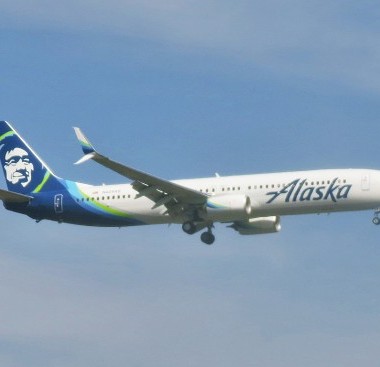JetBlue-Spirit trial revives DOJ claim over air-fare collusion
More than three decades ago, the US Justice Department sued the major airlines for illegally coordinating fares through a shared database that provides travel agents and related websites with schedules and ticket information.
The airlines eventually settled the case and promised to avoid colluding on prices. Now antitrust enforcers say the industry is at it again.
Justice Department lawyers revived their concern over illegal fare signaling during the antitrust trial to block JetBlue Airways Inc.’s $3.8 billion merger with Spirit Airlines Inc. The practice is known as “flashing,” when airlines alert each other to price changes by updating and then quickly canceling them on the shared system.
All airlines submit fare information to the Airline Tariff Publishing Co., known as ATPCO, a database used by travel agents, distribution systems like Sabre Corp. and online price comparison websites such as those run by Expedia Group Inc.
“The airlines use ATPCO to attempt to signal each other,” Gautam Gowrisankaran, an economics professor at Columbia University, said last month during the JetBlue-Spirit trial while testifying as the Justice Department’s main economic expert. “The lowering of fares might seem like it’s good for consumers, but it’s meant as a signal to the other airline. It’s meant to tell the other airline, ‘back off and raise prices.’”
ATPCO and JetBlue didn’t respond to requests for comment.
In the lawsuit seeking to block the Spirit deal, antitrust enforcers highlighted an instance in February 2020 when JetBlue noticed that Southwest Airlines Co. was offering a cheaper fare on flights from Boston to Baltimore. The airline “flashed” the database to point out the discrepancy and signal that Southwest should increase its prices, the Justice Department said.
Evan Jarashow, JetBlue’s manager of international pricing, testified about another instance, captured in a February 2020 email, where his subordinates said they would add and then cancel a fare change in the database to try to “flash American,” which was offering lower prices than JetBlue on Boston-to-Philadelphia flights. But Jarashow denied that his team sought to send a signal on pricing and that he couldn’t recall any other instances of the practice.
Jarashow previously testified as part of the Justice Department’s challenge to JetBlue’s partnership with American Airlines Inc., which a federal judge ordered unwound this year. In that case, Jarashow said that highlighting pricing discrepancies “could be a reason” that JetBlue would add and then quickly cancel a fare in the database.
American and Southwest didn’t respond to requests for comment.
ATPCO has come under antitrust scrutiny before. In the early 1990s, the Justice Department sued the company and the airlines that jointly owned it for using the database to illegally coordinate on pricing. The airlines eventually agreed to settle and limit the information shared through ATPCO for 10 years. American got dinged for violating the settlement in 2004, paying a $3 million fine and agreeing to abide by the terms for another seven years.
The Justice Department has long been concerned about improper coordination by the airlines. In 2015, the agency opened a probe into whether major US carriers coordinated to raise fares by curbing the supply of seats. The availability of seats is closely tied to air fares, because airlines find it difficult to raise prices when capacity exceeds demand.
The agency closed that probe in 2017 at the end of the Obama administration, but private plaintiffs continued to push an antitrust class action against the four biggest airlines over the alleged coordination. Both Southwest and American agreed to settle the cases. In September, a federal judge rejected a bid by Delta Air Lines Inc. and United Airlines Holdings Inc. to end the case early, finding there was enough evidence “demonstrating a pattern of parallel behavior” to “exclude the possibility that defendants acted independently.”
Similar Stories

Chapman Freeborn agrees partnership with Portuguese multimodal logistics specialist
View Article
Cathay is ready for the commissioning of the three-runway system at Hong Kong International Airport
View ArticleUnited Airlines Holdings Inc. upgraded To ‘BB’; outlook stable
• United Airlines Holdings Inc. is on track to generate credit measures in line with our previous upside rating threshold this year, and we expect improvement in 2025. • The…
View Article
WorldACD Weekly Air Cargo Trends (week 46) - 2024
View Article
Freightos and E2open integrate to simplify air cargo bookings
View Article
Citywide sale-leaseback highlights Phoenix Airport submarket
View ArticleGet the most up-to-date trending news!
SubscribeIndustry updates and weekly newsletter direct to your inbox!





